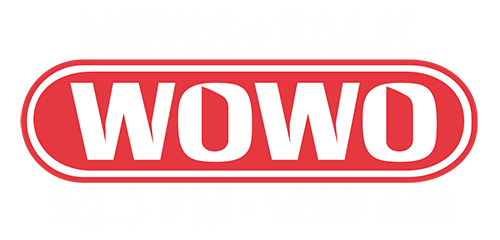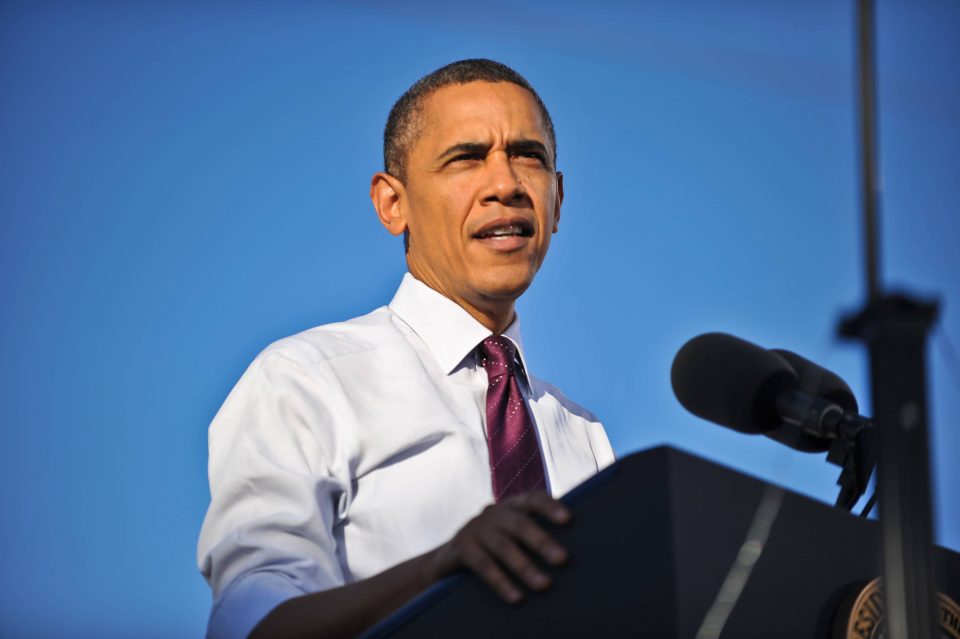HAVANA (AP): The Latest on President Barack Obama’s trip to Cuba (all times local):
11 a.m.
President Barack Obama has signed many guest books during his time in office, but the message he left behind for Cubans is one for the history books.
“It is a great honor to pay tribute to Jose Marti, who gave his life for independence of his homeland. His passion for liberty, freedom, and self-determination lives on in the Cuban people today,” Obama wrote in dark ink in the book after he laid a wreath and toured a memorial dedicated to the memory of Jose Marti.
Marti was an influential poet and journalist who became a symbol for Cuba’s bid for independence against Spain in the 19th century.
10:45 a.m.
In a long-anticipated moment, President Barack Obama and Cuban President Raul Castro shook hands warmly and smiled for the cameras as they greeted each other at the Revolutionary Palace.
It was the leaders’ first meeting since Obama arrived in Cuba on Sunday and a milestone in the new era of closer relations between the two countries.
Obama and Castro exchanged words briefly, although their remarks were not picked up by the television cameras nearby.
The men then watched a display of Cuban troops. Secretary of State John Kerry, National Security Advisor Susan Rice and several other U.S. officials looked on.
Obama and Castro have met before. They first shook hands in 2013 in South Africa at the Nelson Mandela’s funeral.
10:30 a.m.
President Barack Obama’s first stop on his first full day in Cuba was Revolutionary Square, home to a memorial to Cuba independence hero Jose Marti.
Obama arrived midmorning for a brief wreath-laying ceremony. Standing in a lineup of Cuba and U.S. officials, the president listened as a military band played both the Cuban and American national anthem. He held his hand on his heart for the “Star Spangled Banner” and watched as three Cuba soldiers carried a massive wreath of red and white roses to the base of the Marti memorial. Obama made no remarks.
The scene was heavy with reminders of Cuba’s history.
Behind Obama were striking steel sculptures of two Cuban Revolution figures: Ernesto “Che” Guevara and Camilo Cienfuegos.
10:20 a.m.
Havana residents say they hope U.S. President Barack Obama’s meeting with Raul Castro of Cuba today will bring change that betters their lives in concrete ways.
Just before the encounter was set to take place, Marta Rodriguez was waiting for a bus to go to work. She said “what I hope for is an agreement, an improvement for us.”
Roberto Hernandez is a 52-year-old construction worker. He says some things have changed as longtime Cold War foes Havana and Washington repair relations, but added: “I don’t see a complete change as the people had expected.”
Hernandez says he’d like to see changes that include ending the U.S. embargo, which is also a chief demand of the Cuban government.
Obama has implemented a number of measures poking holes in the embargo, but the power to lift it outright lies with the U.S. Congress.
9:40 a.m.
There’s a slightly muted air in Havana surrounding President Barack Obama’s visit – one of the most anticipated events in decades for Cuba.
Officials have kept crowds small and while government press attention has been extensive, it’s fallen short of the blanket coverage given papal visits.
That’s largely because deep differences remain between the two sides – as both are at pains to stress. Cuba’s government for decades has largely defined itself by its opposition to Washington – which treated Cuba as a sort of colony for the first half of the 20th century, often interfering in its affairs.
Among those who greeted Obama on Sunday is Gustavo Machin, Cuba’s deputy director of U.S. affairs. He says his government needs a strong negotiating position in facing the superpower.
In his words, “The United States has tried to absorb Cuba for many years and it’s never been able to absorb it.”
He adds: “We can have a closer relationship … but all of Cuban history shows that no great power, as strong as it is, can overpower Cuba.”
8:55 a.m.
One of today’s key events on President Barack Obama’s historic trip to Cuba is a meeting with small-business people from the island and visiting American business executives.
Under economic reforms to Cuba’s once-monolithic Communist system, about 400,000 Cubans have opened or are employed by private small businesses. They include restaurateurs and cellphone repair technicians, fruit sellers, hair dressers and taxi drivers.
They’re known as “cuentapropistas” – roughly, “people working on their own account.” They make up a nascent private sector.
The state still controls the main economic spheres, however, and the legally licensed activities covered by “cuentapropismo” do not cover professional-class workers such as lawyers, doctors and others.
Obama’s relaxation of the U.S. embargo of Cuba is aimed partly at encouraging relationships with the private businesses.
8:40 a.m.
The initial public event of President Barack Obama’s first full day in Cuba will be at Havana’s sprawling Revolution Square, where giant sculptures of revolutionary leaders Ernesto “Che” Guevara and Camilo Cienfuegos gaze down from ministry buildings. It’s home to the government palace, the seat of executive power, and the national library.
The plaza is where the government organizes massive patriotic marches and where in years past Fidel Castro made a habit of giving hours-long speeches under the blazing sun. Musical groups put on huge free concerts here, and Popes John Paul II, Benedict XVI and Francis all celebrated Mass in the iconic space.
Towering over it is the Monument to Jose Marti, a white spire that’s visible from many parts of the city. The monument is a mainstay on itineraries of visiting foreign leaders, who, as Obama plans to do, invariably stop to lay a ceremonial wreath during state visits.
Marti is a poet and independence hero considered Cuba’s founding father. He’s embraced by both sides of the island’s political and geographical schism.
The Cuban government lionizes him as an almost mythical figure in the struggle to free the island from Spanish colonial rule. Exiles also claim him as their own, and his name is used by the U.S.-funded Radio and TV Marti which beam broadcasts critical of the Cuban government at the island.
8:20 a.m.
President Barack Obama’s trip is getting coverage in Cuban state news media that’s respectful if muted compared to the global headlines about the visit.
Cuba’s main paper is the Communist Party organ Granma. It published a 560-word front-page article titled “Obama in Cuba on official visit” that dryly recounts the president’s first half-day in Cuba. Television news led with Obama’s trip then moved quickly to press conferences by Cuban officials about the country’s achievement in medical research and the difficulties posed by the U.S. trade embargo on the island.
The Communist government had dedicated more than a half-century to assertions of independence from the United States and it’s balancing its welcome of Obama with reminders that its system isn’t changing.
Videos circulating on social media showed a more enthusiastic reception. One taken with a cell phone from a building facing the restaurant where Obama dined Sunday night shows Cubans shouting “Obama!” to welcome him as his armored limousine arrives. He turns and waves to the people looking from their windows and rooftops.
Rapid global distribution of cellphone video taken in Cuba would have been impossible a year ago, before the country opened dozens of public Wi-Fi access spots around the country.

